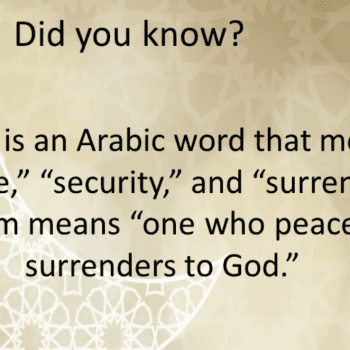 I belong to a very diverse ward which includes Maori, Pakehā (Haolies or Palagi), Canadian, Tongan, Samoan, American, English, Zimbabwean, Iranian, Nepalese, and Ghanaian to name a few. Yesterday at church we were offered the chance to take Samoan language lessons. Quite a few members of the congregation registered their interest with some enthusiasm in understanding both the language and culture of those with whom we share a religion. In our congregation prayers, testimonies, talks etc. are offered in any language one feels comfortable. We are mostly English speakers but for significant minorities a Sunday School lesson is offered in that medium. I’m proud of our ward and the efforts that local leaders have made to honor and respect the cultural and linguistic backgrounds of all members, but there is always more that we could do to ensure that everyone feels that they belong including the single mother, the elderly, the youth and children, women, and the fuming middle-class educated man in the midst of a faith crisis.
I belong to a very diverse ward which includes Maori, Pakehā (Haolies or Palagi), Canadian, Tongan, Samoan, American, English, Zimbabwean, Iranian, Nepalese, and Ghanaian to name a few. Yesterday at church we were offered the chance to take Samoan language lessons. Quite a few members of the congregation registered their interest with some enthusiasm in understanding both the language and culture of those with whom we share a religion. In our congregation prayers, testimonies, talks etc. are offered in any language one feels comfortable. We are mostly English speakers but for significant minorities a Sunday School lesson is offered in that medium. I’m proud of our ward and the efforts that local leaders have made to honor and respect the cultural and linguistic backgrounds of all members, but there is always more that we could do to ensure that everyone feels that they belong including the single mother, the elderly, the youth and children, women, and the fuming middle-class educated man in the midst of a faith crisis.
Yet a case is currently brewing in Australia where a Brisbane Stake made a decision some years ago to ban the use of Samoan in Sunday services. It has become so heated that some members of the Samoan community are pursuing legal action against the church, even taking their case to the Samoan Prime Minister.
Those of us in antipodean Mormon circles will probably not be surprised by this story at all. It’s not unusual for Samoan congregations to be created. It’s not unusual for them to be abandoned in short order either, particularly when leaders struggle with understanding the unique dynamics between church and culture in (fa’asamoa) Samoan contexts. It isn’t unusual for the abandonment of Samoan church units to splinter communities, with some using their obedience and compliance to church directives as an indicator of their righteousness, while others rage at the injustice of linguistic hegemony. So I guess what I am saying is, this story is largely unremarkable. These kinds of ad hoc local directives have been the order of the day in Australasia for as long as I can remember.
Simply put, what we have on our hands is a culture war – a competition between two sets of cultural systems, both of which have a powerful internal cultural logic. The internal cultural logic of the LDS mainstream comes largely from white middle class, conservative, corporate America values with its emphasis on personal righteousness, prosperity and education as a marker ecclesiastical usefulness, charismatic leadership and its reliance on correlated mythologies (in English) to tell its stories. Fa’asamoa (or the Samoan way) relies upon tiers of social hierarchies, respectful conduct, and the veracity of the community above the self. Church and community are inseparably connected; they are not discrete entities with church existing as an optional extra. Family is community is church, with all entities bleeding into each other to create a whole way of being. Its not unlike Fa’a-Utah which to my mind is only a notch away from Fa’asamoa with its indistinguishable boundaries between church, culture and community – boundaries and behaviours that have little to do holy living and have everything to do with sustaining a way of life carved out in a particular geographical space, within a particular economic, and political context.
But the biggest problem that I see here is not the culture war that exists between two distinct cultural groups. It’s a crisis of leadership. In public statements both regional leaders and Salt Lake Officials have backed away from this local decision, throwing up their hands in defence arguing, ‘But it wasn’t us – it’s not our fault.’ ‘We had nothing to do with that local decision’. Unfortunately this largely occurs after the fact when the damage is already done.
After observing this pattern for some years. I’m reasonably confident that Mormon leaders simply don’t know what to do with strong, intact language and cultural communities that don’t look like, sound like and organize themselves like the Mormon mainstream. In the absence of a sound approach that reflects the moral purpose of our religion, strategies are deployed to subdue, control and manage what can look like rogue communities. These supposedly heavenly inspired policies however look uncannily similar to the outdated New Zealand colonial policies of ‘civilization’, ‘assimilation’ and ‘integration’.
I’ve heard espoused from Mormon leaders measures that are reminiscent of 19th century tactics that saw colonists extract indigenous youth from their home culture and re-socialize them in colonial institutions. I’ve heard Stake presidents speak emphatically about the necessity to restrict language use (another colonial strategy to undermine the transmission of cultural values). I’ve heard compelling arguments from Mormon leaders on the necessity of disestablishing Samoan units and integrating Samoans into the mainstream church units. This argument mirrors strategies employed during Maori urban migration and the peak of Pasifika immigration during the 50’s and 60’s. State housing policy in this era worked to avoid ‘racial concentrations’ by pepper potting them in white neighbourhoods What I’m suggesting here is that colonial politics are not inspired – they are oppressive. Revisioning colonial politics and recasting them as having a divine origin are not just oppressive – they are malicious, and the negative effects are incalculable.
Obviously, I’m not going to support any particular government policy to deal with our Mormon culture wars. As a religious and moral community the more we privilege ‘policy’ as a solution, the more we shift our hearts away from where they should be primarily settled. And this is upon the necessity to move ourselves, and each other from a place of ungodliness to holiness, from the profane to the sacred, from judgment to mercy, and from abhorrence to love.
Today’s cultural strategies such as interculturalism, multiculturalism, cross-culturalism, biculturalism are legitimate approaches primarily designed to meet a government’s need to manage competing cultural claims in diverse populations. As a religion they might be helpful in developing certain competencies but they can’t be the ends in and of themselves. Rather, it would seem that cultures largely emerge with their own set of coherent processes to move their people into transcendent and into divine spaces. From the casserole making door to door service orientation of the English, to the soaring Maori karanga which privileges a deep connection between the living and dead, to the generosity offered at the table of Samoans. Church leaders might be better off understanding these processes and expressions, and allowing them to adhere to gospel principles rather than disciplining when they don’t see recognizable behaviours that agree with their own cultural norms.
Like all of us called to live a life of sacredness, we will inevitably bring into question those cultural practices that don’t fit with our experiences of spiritual transformation. But we can’t force and manage these shifts and changes in others. The moral purpose of religion is not to compel transcendence by constituting ethnocentric norms against which the ideal religious subject is judged. The most we can do is to uphold a compelling moral vision and extend an irresistible invitation to all to feast at the Lord’s table regardless of who we are, where we come from, or what language we speak.
In my work with students, who are largely middle class white kids, we challenge them to think about the ‘more’ that our cultural Others offer us. Not just because difference can be ‘amusing’, but because there is a compelling need to challenge and disrupt certainties that have us bound to a way of being that is becoming increasingly objectionable in a world weary of cultural tyrannies. Unfortunately Mormonism has constituted its own kind of cultural tyranny, and we would all be better off in our pursuit of the ‘holy highway’ if that were to end. Today would be good.











